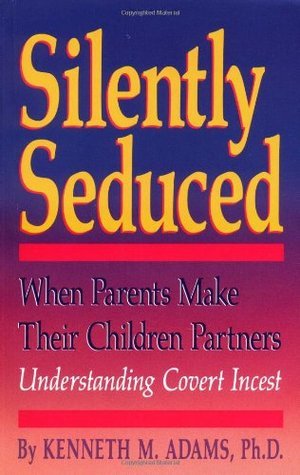What do you think?
Rate this book


Did you have a parent whose love for you felt more confining than freeing, more demanding than giving, more intrusive than nurturing? Did you feel trapped in a "psychological marriage" with this parent? If so, you may be a victim of covert incest.
Identification of this kind of incest is difficult, since covert incest victims often feel idealized and privileged, not violated and abused. In Silently Seduced, Dr. Adams, through illustrative case examples and perceptive insight, provides covert incest victims a framework to understand what happened to them, how their lives and relationships continue to be affected and how to begin the process of recovery.
116 pages, Paperback
First published April 1, 1991